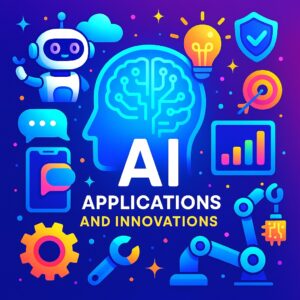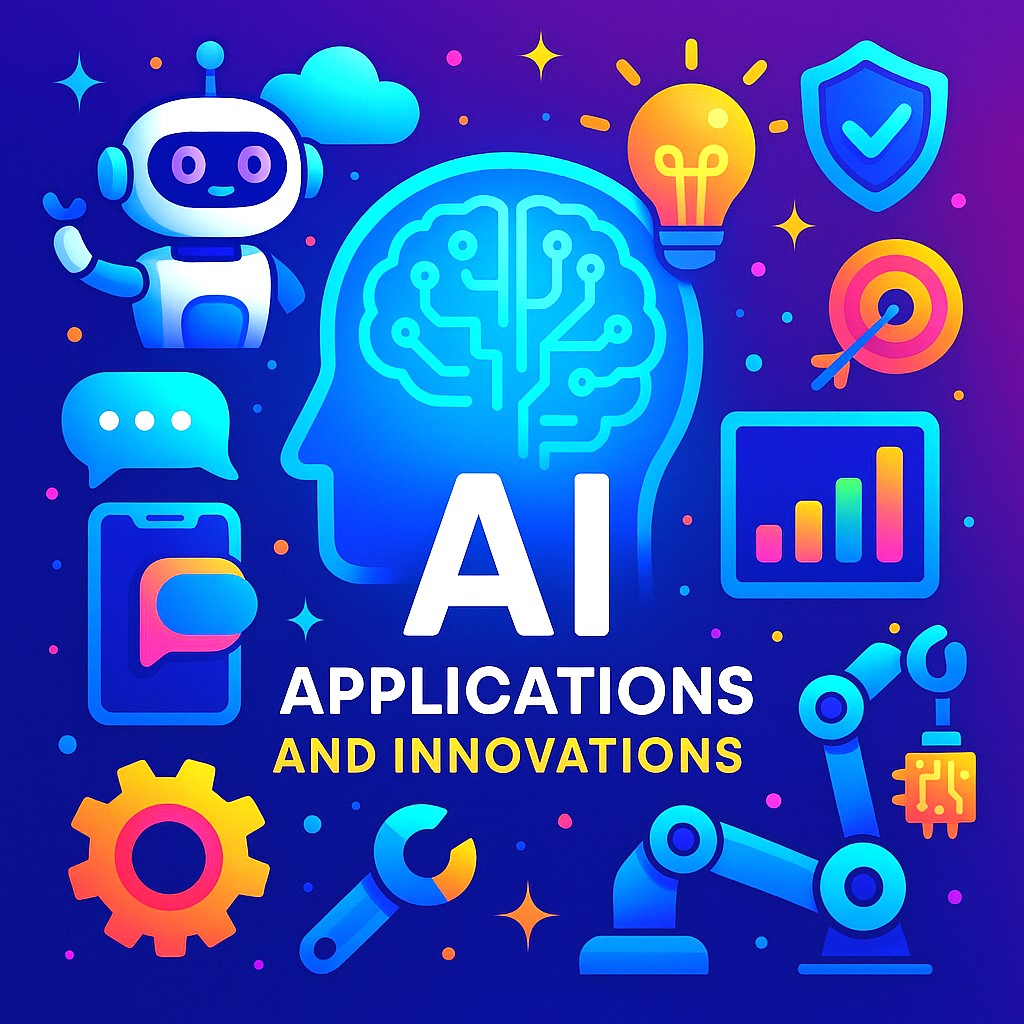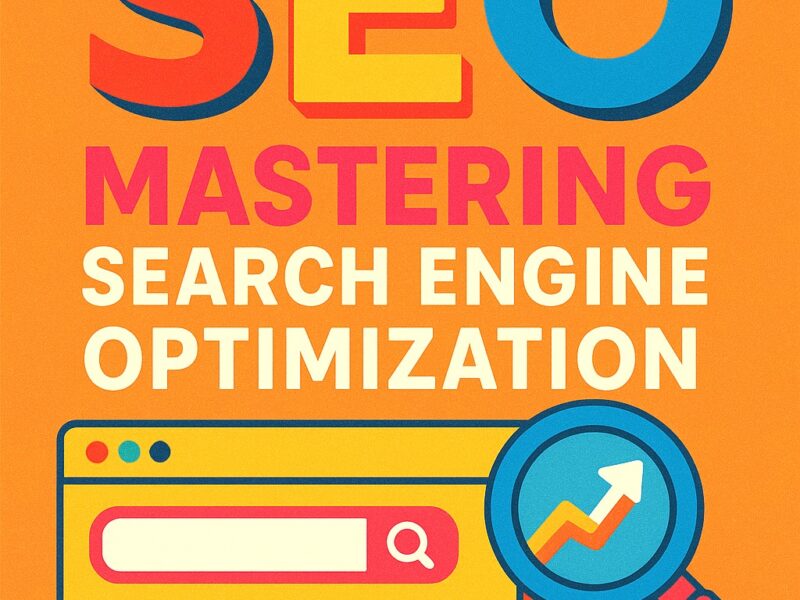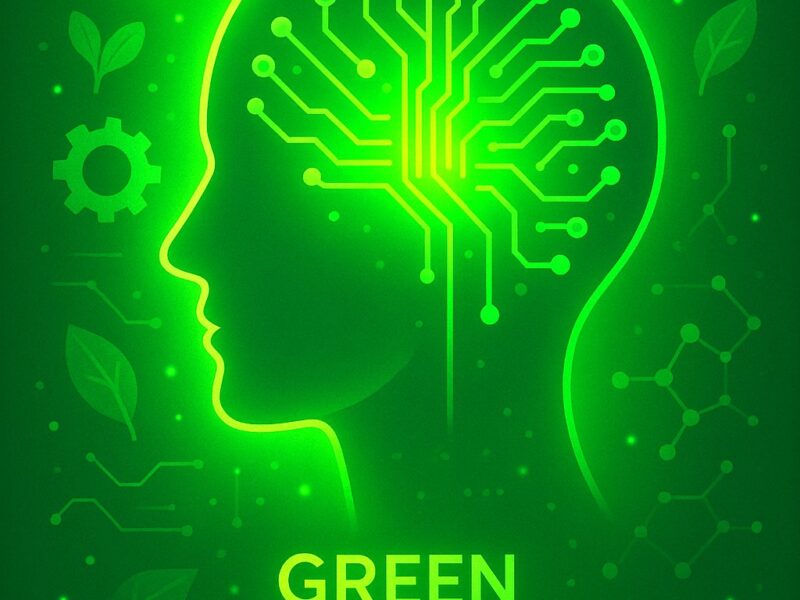Artificial Intelligence Applications And Innovations

Artificial Intelligence (AI) has rapidly evolved from a futuristic concept to a transformative force reshaping industries, economies, and everyday life. As machines become smarter and more capable, their applications have expanded into nearly every domain imaginable. In this article, we explore the wide-ranging uses of AI, the latest innovations, and the real-world impact it is having today and in the future. This article is designed to provide accurate, validated information in a human-friendly way while optimizing for top rankings under the keyword “Artificial Intelligence Applications And Innovations.”
What Is Artificial Intelligence?
Artificial Intelligence refers to the development of computer systems that can perform tasks typically requiring human intelligence. These tasks include learning, reasoning, problem-solving, language understanding, and perception. AI is categorized into narrow AI (specific tasks), general AI (human-level understanding), and superintelligent AI (beyond human intelligence, which remains theoretical).
AI systems operate using algorithms, data, and computing power. The recent progress in deep learning, neural networks, and data processing has significantly accelerated AI innovation.
AI in Healthcare
One of the most impactful applications of AI is in the healthcare industry. Medical professionals now rely on AI-powered tools for early diagnosis, treatment planning, and patient monitoring.
-
Medical Imaging Analysis: AI can analyze medical scans such as X-rays, MRIs, and CTs faster and often more accurately than human radiologists.
-
Predictive Analytics: AI can predict disease outbreaks, identify patients at risk for chronic illnesses, and even suggest preventive treatments.
-
Robot-Assisted Surgery: Robotic systems guided by AI enhance surgical precision and reduce recovery times.
These innovations are improving patient outcomes and reducing the burden on healthcare systems globally.
AI in Transportation
The transportation sector is undergoing a major transformation through AI. From self-driving vehicles to traffic management, AI is optimizing how we move.
-
Autonomous Vehicles: AI enables cars, drones, and delivery robots to operate with minimal human input using sensors and real-time data analysis.
-
Route Optimization: AI algorithms analyze traffic patterns to suggest the quickest or most fuel-efficient routes.
-
Predictive Maintenance: Transportation companies use AI to anticipate vehicle maintenance needs, reducing downtime and increasing safety.
These applications are making travel safer, more efficient, and environmentally friendly.
AI in Agriculture
Agriculture has embraced AI to meet the growing food demand of a rising global population.
-
Smart Farming: AI-driven systems monitor crop health, detect diseases, and suggest optimal harvesting times.
-
Automated Machinery: Tractors and harvesters can now operate autonomously using AI navigation.
-
Yield Prediction: AI models analyze weather patterns, soil conditions, and other data to forecast crop output with impressive accuracy.
By increasing productivity and minimizing waste, AI is revolutionizing how food is grown and delivered.
AI in Finance and Banking
Financial institutions use AI to improve customer service, detect fraud, and manage assets.
-
Fraud Detection: AI systems monitor transaction patterns and flag unusual activities in real time.
-
Customer Service: AI chatbots provide 24/7 support, answer common queries, and streamline account management.
-
Algorithmic Trading: AI algorithms execute trades at lightning speed, responding to market trends that are invisible to the human eye.
These tools make financial services more secure, efficient, and accessible.
AI in Education
AI is also transforming the education sector, making learning more personalized and accessible.
-
Intelligent Tutoring Systems: These AI-powered platforms adapt lessons to the learner’s pace and style.
-
Automated Grading: Educators use AI to assess student work quickly and consistently, saving time for deeper engagement.
-
Virtual Learning Assistants: These digital tools help students with assignments, reminders, and course content.
As a result, education is becoming more inclusive and customized.
AI in Customer Service and Marketing
In customer-facing industries, AI is helping brands deliver better service and understand consumer behavior.
-
Chatbots and Virtual Assistants: These AI tools offer instant replies to customer questions, helping companies operate around the clock.
-
Sentiment Analysis: AI scans social media and reviews to understand public opinion about products and services.
-
Personalized Recommendations: AI analyzes user behavior to suggest products or services that match individual interests.
These applications improve user experience and drive customer engagement.
AI in Cybersecurity
With the rise of digital threats, cybersecurity has become more critical than ever. AI is stepping in to defend systems proactively.
-
Threat Detection: AI identifies malware, phishing attacks, and other threats faster than manual systems.
-
Incident Response: When a threat is detected, AI can isolate the affected systems to contain the breach.
-
Identity Verification: AI tools help verify identities using biometrics, voice recognition, or behavioral analysis.
These systems protect sensitive data and ensure a safer digital environment.
Innovations Driving AI Forward
Beyond current applications, several emerging innovations are setting the stage for the next generation of AI breakthroughs:
-
Explainable AI (XAI): This approach ensures that AI decisions are understandable to humans, promoting transparency and trust.
-
Federated Learning: A new training method that keeps data on local devices, enhancing privacy while still allowing AI models to learn.
-
Edge AI: Running AI on local devices rather than in the cloud allows for faster decision-making and lower latency.
These technologies are paving the way for smarter, more ethical AI systems.
The Future of AI
As AI continues to evolve, its potential applications are limitless. We can expect:
-
AI-assisted Creativity: Tools that help in music, art, and storytelling creation.
-
Emotional AI: Systems that understand human emotions and respond with empathy.
-
General AI Research: Ongoing efforts to build systems that think and learn like humans.
The responsible development and ethical application of AI will be essential as its influence grows.
Ethical and Social Considerations
With great power comes great responsibility. As AI becomes more prevalent, ethical concerns must be addressed:
-
Bias in Algorithms: If not properly trained, AI can reflect and amplify existing human biases.
-
Job Displacement: Automation may replace certain roles, necessitating new skill training for the workforce.
-
Privacy Concerns: AI relies on data, making it crucial to enforce strong privacy protections.
Regulation, transparency, and public awareness are key to ensuring AI benefits society as a whole.
Conclusion
Artificial Intelligence is no longer a futuristic idea—it’s a powerful tool shaping the present and future. From revolutionizing industries to enriching everyday life, AI applications and innovations continue to expand at a remarkable pace. As we harness this technology, it’s essential to balance progress with responsibility, ensuring that AI serves humanity ethically and effectively.
By staying informed, investing in innovation, and focusing on human-centric design, we can all play a role in building a better world through AI.
Key Takeaways: Artificial Intelligence Applications and Innovations
-
AI is revolutionizing industries: From healthcare and agriculture to finance and education, artificial intelligence is driving efficiency, accuracy, and innovation across sectors.
-
Healthcare is a major beneficiary: AI assists in diagnosing diseases, analyzing medical images, and even performing robot-assisted surgeries, leading to better patient care.
-
Transportation is becoming smarter: Autonomous vehicles, traffic predictions, and predictive maintenance are improving mobility and safety.
-
Agriculture is getting more productive: Smart farming and AI-powered analytics are increasing crop yields and reducing waste.
-
Finance is more secure and efficient: AI detects fraud, automates trading, and enhances customer service through intelligent virtual assistants.
-
Education is more personalized: AI-driven tutoring systems and automated grading support teachers and adapt to individual student needs.
-
Customer engagement is enhanced: Brands use AI to analyze consumer behavior, offer personalized experiences, and provide instant support via chatbots.
-
Cybersecurity is stronger with AI: AI helps detect threats early, respond in real-time, and verify digital identities to keep systems secure.
-
New innovations are emerging: Technologies like Explainable AI, Edge AI, and Federated Learning are pushing AI into more transparent, private, and powerful territories.
-
Ethical concerns must be addressed: Bias, privacy, and job displacement require responsible AI development guided by transparency and fairness.
-
The future of AI is vast: As AI advances, it will enhance creativity, understand human emotions, and edge closer to human-level intelligence—if developed responsibly.
These takeaways highlight how artificial intelligence is not only shaping our present but also laying the foundation for a smarter, more connected future.
References
https://en.wikipedia.org/wiki/Artificial_intelligence
https://en.wikipedia.org/wiki/Application_software
https://en.wikipedia.org/wiki/Innovation
Links License – https://en.wikipedia.org/wiki/Wikipedia:Text_of_the_Creative_Commons_Attribution-ShareAlike_4.0_International_License
Dear Friends, warmly welcome You check out tech products from my website. Kindly visit the link below.
https://techsavvo.com/category/tech-products/
Thanks For Reading This Article On “Artificial Intelligence Applications And Innovations”.



One thought on “Artificial Intelligence Applications And Innovations”